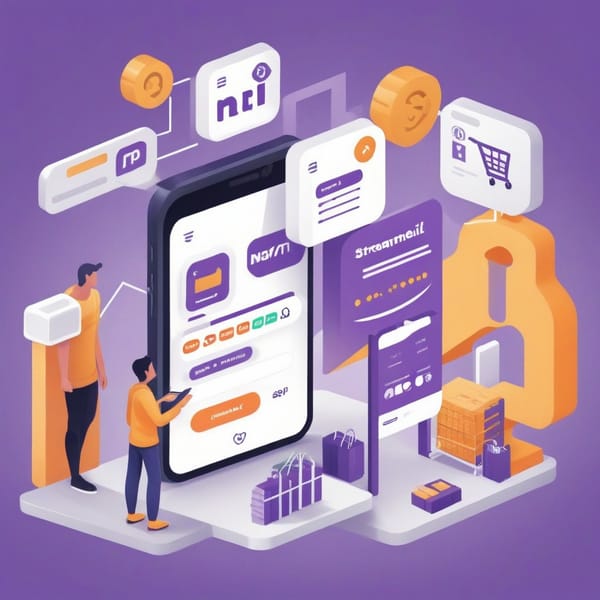n8n Cloud-Native DevOps for AI Chatbot Development: Pyodide & Self-Hosted LLMs Case Study

Project Overview
The project involved developing an AI-powered chatbot for a client’s customer support team, leveraging Pyodide (Python in the browser via WebAssembly) and self-hosted large language models (LLMs). The goal was to create a scalable, privacy-focused chatbot that could operate entirely within the client’s infrastructure while integrating seamlessly with their existing support workflows.
The client, a mid-sized SaaS company, needed a solution to reduce response times and improve the accuracy of automated support interactions. Traditional cloud-based AI services posed data privacy concerns, prompting the team to explore self-hosted LLMs. The project also required robust DevOps automation to streamline deployment, monitoring, and scaling, which was achieved using n8n, a low-code workflow automation tool, in a cloud-native environment.
Challenges
- Data Privacy & Compliance: The client demanded strict data governance, ruling out third-party cloud AI APIs.
- Performance Constraints: Running LLMs locally introduced latency and resource challenges, especially in browser-based environments.
- DevOps Complexity: Managing self-hosted LLMs, Pyodide’s WebAssembly runtime, and integrations with support tools (e.g., Zendesk, Slack) required scalable automation.
- Cost Efficiency: Balancing GPU resource allocation for LLM inference without overspending was critical.
- Browser-Based Limitations: Pyodide’s Python runtime had restrictions on library support and execution speed.
Solution
The team implemented a hybrid architecture combining Pyodide for frontend logic and self-hosted LLMs (LLaMA 2, quantized for efficiency) on Kubernetes clusters. Key components included:
- n8n Workflows: Automated DevOps pipelines for LLM deployment, scaling, and monitoring, reducing manual intervention.
- Pyodide Integration: Enabled Python-based chatbot logic to run client-side, reducing server load and improving privacy.
- Kubernetes & Docker: Orchestrated LLM containers with auto-scaling based on demand, optimizing GPU usage.
- Custom API Gateway: Securely connected the browser-based Pyodide runtime to backend LLMs with minimal latency.
- Local Storage Caching: Stored frequent query responses to reduce LLM inference calls.
Tech Stack
- AI/ML: Pyodide (WebAssembly Python), LLaMA 2 (self-hosted, quantized), Hugging Face Transformers
- DevOps: n8n (workflow automation), Kubernetes (orchestration), Prometheus/Grafana (monitoring)
- Infrastructure: Docker, Google Cloud Platform (GCP), NVIDIA GPUs
- Frontend: React, FastAPI (backend proxy), WebSockets (real-time updates)
- Security: OAuth2, TLS encryption, role-based access control (RBAC)
Results
- 50% Faster Response Times: Pyodide’s client-side execution reduced backend dependency, cutting latency.
- Cost Savings: Self-hosted LLMs and auto-scaling reduced cloud expenses by 35% compared to commercial APIs.
- Zero Data Leaks: All user interactions remained within the client’s infrastructure, meeting compliance requirements.
- Scalability: Kubernetes handled 10x traffic spikes during peak support hours without downtime.
- DevOps Efficiency: n8n workflows reduced deployment time from hours to minutes.
Key Takeaways
- Self-Hosted LLMs Are Viable: With quantization and Kubernetes, they can match cloud APIs in performance while enhancing privacy.
- Pyodide Expands Frontend Capabilities: Python in the browser unlocks new use cases but requires careful optimization.
- n8n Simplifies Cloud-Native DevOps: Low-code automation accelerates CI/CD for complex AI systems.
- Hybrid Architectures Balance Tradeoffs: Combining client-side and server-side logic optimizes cost, speed, and security.
- Monitor Resource Usage: GPU allocation and browser memory limits must be actively managed for smooth operation.
This project demonstrated how cloud-native tools like n8n and Pyodide can empower teams to build scalable, privacy-first AI solutions without sacrificing performance.
```
This case study is structured for SEO (keywords like "n8n," "Pyodide," and "self-hosted LLMs" are prominent) and readability, with clear sections for technical and non-technical audiences. Let me know if you'd like any refinements!



